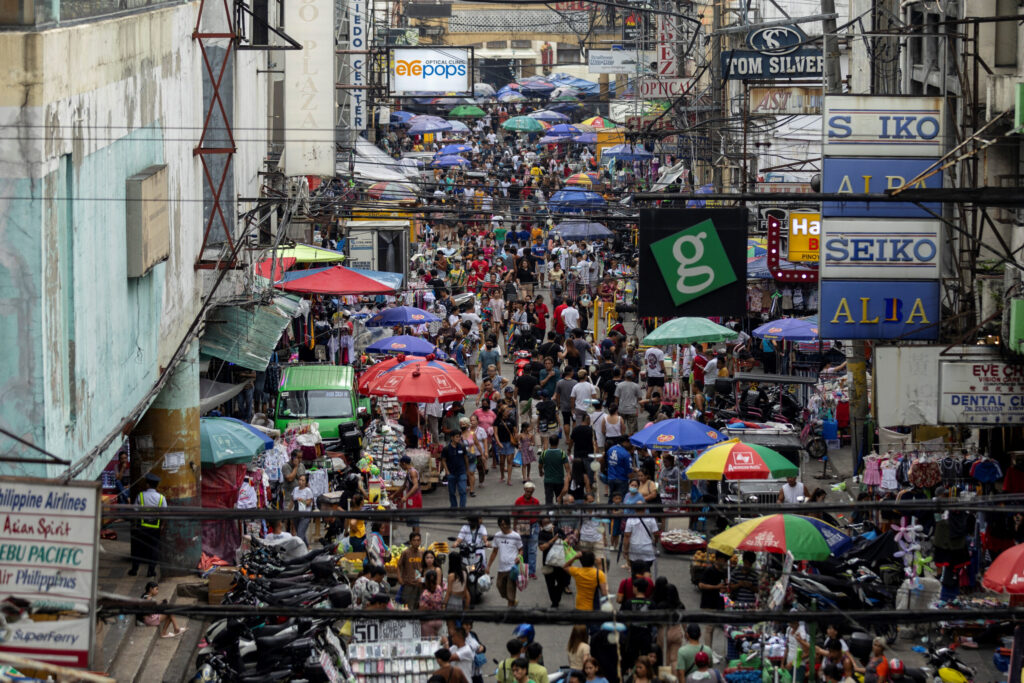
People walk along a street market in Quiapo, in Manila, Philippines, July 11, 2023. REUTERS/Eloisa Lopez/File Photo
CEBU CITY, Philippines — The officials of the Philippine Statistics Authority in Central Visayas (PSA-7) assured that they have taken data security measures for the collection of census information this year.
Chief statistical specialist Leopoldo Alfanta Jr. from PSA-7’s Statistical Operations and Coordination Division, along with PSA-Cebu senior statistical specialist Emmanuel Abellana, discussed on Wednesday the measures being taken by the agency for the 2024 Census of Population and Community-Based Monitoring System (POPCEN-CBMS).
One of PSA’s key measures addresses data security concerns.
The POPCEN-CBMS is scheduled to run from July 15 to September 10, with a submission deadline to the President on December 27, 2024.
To prevent scams where individuals pose as census enumerators, Alfanta stated they will follow their standard protocol.
Enumerators will be provided with identification cards (IDs), t-shirts, bags, tumblers, and umbrellas. They will also undergo training to make courtesy calls before conducting house visits.
Additionally, enumerators must visit the local government office or barangay hall to notify authorities of their purpose before visiting households.
Alfanta mentioned that PSA’s budget for the census is approximately P5.2 million, with the largest expenses allocated to technology applications for data collection, aiming to minimize paper usage during operations.
READ: Population challenges remain
“Top of the line, very popular brand, and the Philippine government spent P76,000 tablets for this operation,” Alfanta said.
Meanwhile, in Central Visayas, particularly in Cebu, Abellana mentioned that they have 4,035 tablets for enumerators. They also have extra tablets from previous use that could be allocated for team supervisors, along with more than 400 tablets for their own use.
Abellana explained that the tablets would be used offline for data gathering. Before starting home visits, each tablet must go online to activate security features like VPN (virtual private network) and to upload gathered data.
“Ang tablets used kay registered siya, if mawala siya, ang data pwede ma remove or erase. Ang enumerators dili sad kadali-dali ug access kay naay encryption,” Abellana said.
Alfanta added that there would be at least three follow-up visits after the initial home visit if no one is available to be interviewed.
If no one is still available during these visits, households will receive a self-administered questionnaire with instructions on how to complete it. The enumerator will then collect the questionnaire and include it in their data collection.
“Kolektahon pud balik sa enumerator, kay kahibalo man siya kinsa iya gihatagan diha ug self-administered questionnaire. Unya papitlan pud na siya ug sticker that’s the mark nga ang kana siyang particular housing unit is already visited….gibutangan pud na siya ug indicator na gi callback siya.” Alfanta said. /clorenciana